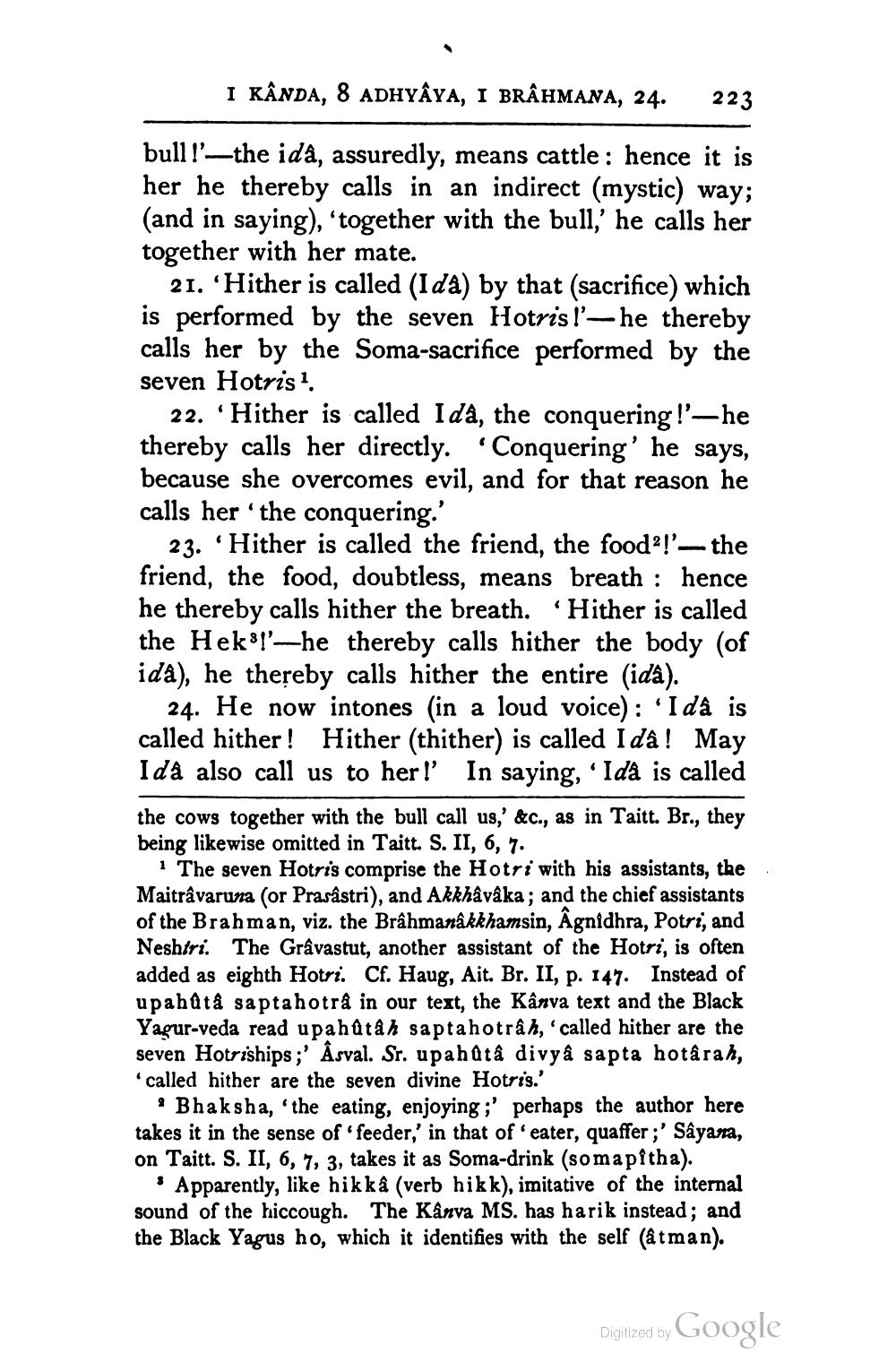________________
I KÂNDA, 8 ADHYÂYA, I BRÂHMANA, 24.
223
bull!'—the ida, assuredly, means cattle: hence it is her he thereby calls in an indirect (mystic) way; (and in saying), 'together with the bull,' he calls her together with her mate.
21. 'Hither is called (I da) by that (sacrifice) which is performed by the seven Hotris 1'- he thereby calls her by the Soma-sacrifice performed by the seven Hotrisi.
22. 'Hither is called Idà, the conquering!'-he thereby calls her directly. "Conquering' he says, because she overcomes evil, and for that reason he calls her the conquering.'
23. 'Hither is called the friend, the food?!' - the friend, the food, doubtless, means breath : hence he thereby calls hither the breath. Hither is called the Heks!'he thereby calls hither the body (of ida), he thereby calls hither the entire (ida).
24. He now intones (in a loud voice): 'Ida is called hither! Hither (thither) is called Ida! May Idà also call us to her!' In saying, ‘Idå is called the cows together with the bull call us,' &c., as in Taitt. Br., they being likewise omitted in Taitt. S. II, 6, 7.
1 The seven Hotris comprise the Hotri with his assistants, the Maitrâvaruna (or Prasastri), and Akkhâvâka; and the chief assistants of the Brahman, viz. the Brahmanakkhamsin, Agnidhra, Potri, and Neshtri. The Grâvastut, another assistant of the Hotri, is often added as eighth Hotri. Cf. Haug, Ait. Br. II, p. 147. Instead of upahật å saptahotrà in our text, the Kânva text and the Black Yagur-veda read upahůtåh saptahotrah, called hither are the seven Hotriships;' Ásval. Sr. upahûtå divyâ sapta hotarah, called hither are the seven divine Hotris.'
Bhaksha, 'the eating, enjoying ;' perhaps the author here takes it in the sense of feeder,' in that of eater, quaffer;' Sâyana, on Taitt. S. II, 6, 7, 3, takes it as Soma-drink (somapitha).
Apparently, like hikkå (verb hikk), imitative of the internal sound of the hiccough. The Kanva MS. has harik instead; and the Black Yagus ho, which it identifies with the self (âtman).
Digitized by Google




